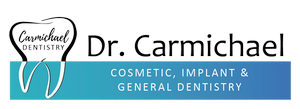Oral Health and Dental Care Tips for Seniors

Dental care is an important part of maintaining health for everyone, especially seniors. Older adults can keep their natural teeth later in life because of an increased understanding of dental well-being. Since many older adults still have their natural teeth, they and their caregivers must know proper dental habits. Over time and with age, changes need to be made to how we care for our teeth. It’s never too early or late to take oral health seriously. This blog discusses oral health and dental care tips for seniors to help the elderly maintain their natural smiles.
Oral Health Problems in the Elderly
Many common health risks for the elderly stem or relate to their teeth and gums. There is a direct link between the health of a senior’s teeth and their overall health. Being over the age of 55 puts you at risk for:
Dry mouth
A dry mouth occurs when there is a lack of saliva, making it hard to chew and swallow. In more severe cases, it can make speaking challenging for seniors. Many different things can cause a dry mouth. It is often a side-effect of medications for hypertension, heart problems, and diabetes. Dry mouth can lead to tooth decay and gum disease if left untreated.
Root Decay
Seniors are most likely to experience tooth decay, specifically around the root. The decay occurs at the root due to cavities appearing more frequently at the gum line and not at the fillings. Root decay is also more common in those with diabetes or who have a high sugar diet.
Periodontal (Gum) Disease
Gum disease is one of the most common dental issues in seniors. The issue is caused by plaque buildup, which leads to inflammation, bleeding, pain, difficulty chewing, and loss of the affected teeth. New studies have shown a possible link between diabetes and gum disease; periodontal complications may worsen diabetes symptoms.
Dental Care for Seniors at Home
Maintaining oral health is generally simple, and cleaning should be performed regularly to prevent tooth decay and other complications. It’s essential for older adults to:
-Brush natural teeth with a soft toothbrush and fluoride toothpaste at least twice daily. Brush gently in circular motions, and also brush your gums and tongue. Tooth sensitivity can become an issue with age. If it does, consider using sensitive toothpaste.
-Floss at least once a day to remove food debris from between teeth. Consider a single-use, one-handed flossing kit if regular floss is too difficult to use.
-Use mouthwash with fluoride to help decrease the likelihood of plaque buildup, which will prevent cavities and tooth decay.
-Replace your toothbrush every three or four months.
-Limit the intake of sugary foods and drinks that can cause cavities.
-Increase your calcium intake. This mineral helps maintain strong teeth and gums and can be found in many food sources, like dairy products, salmon, brown rice, and green peas.
-Drink lots of water throughout the day to relieve dry mouth. It’s not uncommon for dry mouth to be caused by certain prescription drugs, so if it seems serious, talk to your doctor.
-Increase visits to the dentist for basic oral exams to spot any dental issues early on and explore your treatment options.
Overall, brushing and flossing are some of the best preventative methods, no matter what age you are. However, advanced age can complicate things, so brushing and flossing aren’t the only things you should do to keep your oral health in check.
Caring for Dentures
Dentures, just like natural teeth, need to be cleaned regularly to prevent the buildup of food and plaque. If you or a family member wears dentures, be sure to:
-Brush them thoroughly, at least twice daily, with a denture cleanser.
-Take them out overnight and soak them in water or a dental cleaning solution. Taking your dentures out while you sleep lets your mouth and jaw rest and prevents false teeth from drying out.
-Never use bleach, soap, or other harsh cleaners on your dentures. They can damage or discolor them.
-Consider using a commercial ultrasonic denture cleaner.
-Depending on how well they are taken care of, dentures should last five to eight years. If you take proper care of your dentures, they can last a long time!
An increasingly popular alternative to dentures is dental implants. Dental implants replace the root of the tooth entirely, can improve chewing ability, and make speaking easier. They provide a more natural look and feel to the teeth, and, unlike other procedures, they won’t destroy other teeth or cause bone loss. It may be worth considering implants as a possibility for your elderly loved one.
If you need any assistance with understanding or correcting an elderly dental issue, Carmichael Dentistry is here to help! Dr. Natalya Carmichael and her dedicated team can discuss how to best care for your natural teeth, dentures, and dental implants with you and schedule you for an appointment should you need one. Give us a call at (858) 484-2560 or visit https://carmichaeldds.com/ for more information.




